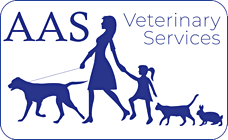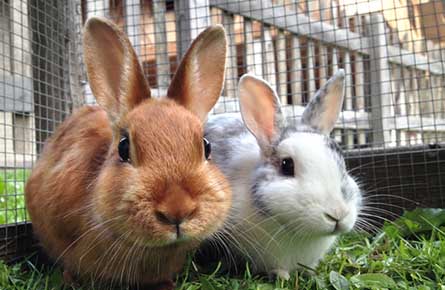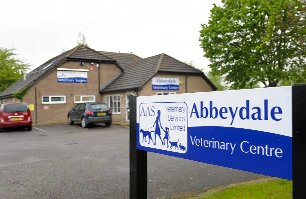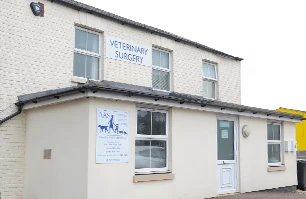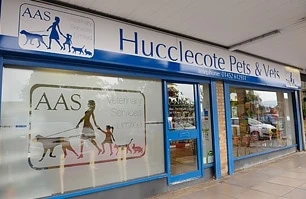At AAS Vets, we advise that your dog’s dental care and oral hygiene is just as important as any other routine preventative treatment. Like humans, dogs can develop a build-up of tartar, leading to tooth decay and gum disease. In some cases, dogs can also develop severe dental disease if their dental care is not maintained.
Brushing your dog’s teeth once or twice a day is the best option for good dog dental care. We also have products such as liquids to add to their water to help reduce plaque build-up and reduce bad breath (halitosis), as well as veterinary dental diets. Here at AAS Vets, our team would be happy to assist you with answering any questions you may have, as well as advising you on the recommended products or diets for your dog.

Symptoms of dental disease in dogs
Dogs can be very good at hiding signs of oral pain and disease. Some dogs with severe dental disease, including root exposure, severe gingivitis (inflammation of the gums), and tooth root infections, will continue to eat, showing only subtle signs that something is wrong.
This can result in a dog having multiple teeth extracted at one time as opposed to one tooth extraction. Build-up of plaque and tartar will not be removed by teeth brushing alone. If this is already present, we’d recommend a scale and polish to remove this, followed by tooth brushing to prevent the build-up occurring again.
A general anaesthesia is required for all dental procedures, however, having a routine scale and polish carried out to prevent dental disease from progressing is a hugely reduced anaesthetic time compared to multiple extractions being carried out.

Signs of poor oral health in dogs
There can be a number of signs that indicate your dog may be struggling with their dental health, including:
- Bad breath (halitosis)
- Visible tartar build-up on teeth
- Red or inflamed gums (gingivitis)
- Discoloured teeth
- Loose teeth
If you have noticed changes in your dog’s behaviour and think it may be related to their oral health, book an appointment with AAS Vets to discuss your dog dental care.
Signs of severe dental disease in dogs
Severe dental disease in dogs can cause significant discomfort. Some of the signs of severe dental disease can include:
- Drooling
- Bleeding from the mouth
- Slowness or reluctance to eat
- Chewing on one side of the mouth
- Dropping food from the mouth when eating
- Swelling around the mouth (from potential tooth root abscesses)
If you detect any of the above signs, please contact AAS Vets in Gloucestershire to book an appointment for a vet to examine your dog as soon as possible.
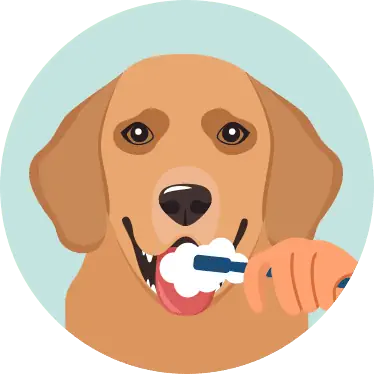
How can dental disease in dogs be prevented?
The best way to help dogs maintain healthy teeth is to brush your dog’s teeth daily. This is easiest to start as a puppy but can be introduced at any age. The team at AAS Vets would be happy to help with advice on introducing toothbrushing to your dog.
It can also be beneficial to have a scale and polish performed regularly to clean the teeth thoroughly. This is similar to the treatment we would receive from a dental hygienist. These are done under a short general anaesthetic as dogs won’t sit in one position for a prolonged period and we must ensure their safety and the team’s safety when in the vicinity of sharp teeth!

Why does dental disease occur in dogs?
Food and saliva that is left behind on the teeth will form plaque on the tooth. Plaque is soft and can be removed by brushing or using alternative dental products. If not removed, the plaque will harden forming tartar, which is difficult to remove without dental intervention.
If tartar is not removed (normally via the scale and polish procedure) then bacteria will spread below the gum line, causing sore, red gums. This is called gingivitis and periodontitis, which in turn can lead to loose teeth, infection of the tooth root and jawbone infections.
Book a dog dental care appointment
We are happy to answer any questions you may have, as well as advising you on the recommended products or dental diets for your pet. Contact AAS Vets in Gloucestershire for a dog dental care consultation at a time that suits you.
